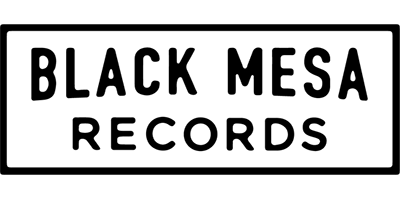Tim Easton
A mainstay of American roots music for more than 20 years, Tim Easton crafts songs that blur the lines between folk, blues, and workingman's rock & roll.
It's an honest sound influenced not only by the flat-pickers and folksingers who came before him, but also the arc of Easton's own experience. Born within a stone's throw of the Niagara River, he spent his childhood in upstate New York and midwestern Ohio, raised on the sounds of trailblazers like Doc Watson and Woody Guthrie. Following in his heroes' footsteps, he grew into a modern-day troubadour, busking his way around Europe for the better part of a decade before heading back home to America. Although he eventually settled in East Nashville, his touring schedule continued to take him across much of the world, from barroom gigs in rural Alaska to festival appearances in Russia.
Somewhere along the way — between the acclaimed albums he released with New West, the gigs with icons like Townes Van Zandt and Kris Kristofferson, and the relentless work ethic that kept him on the road year after year — things got blurry. Easton grew attached to the wild lifestyle of a traveling musician, leading to burned bridges and broken relationships. On his tenth album, You Don't Really Know Me, he shines a light on his fall from grace and subsequent climb back to stability, focusing on the gratitude that arrives after you've shed your useless baggage.
"In some ways, it's a recovery album," says the singer/songwriter, who wrote the bulk of You Don't Really Know Me during the national quarantine of 2020. "Not only recovery from a vice, but also recovery from a divorce and a destructive, rambling life of self-centered gratification. It's a peaceful, positive, loving album — an album about personal revolution."
The autobiographical "Real Revolution" spells out the record's theme of rebirth, redemption, and personal rediscovery in three minutes. "Real revolution does not have to be the violent kind; real revolution takes place in your heart and in your mind," Easton sings, his voice flanked by acoustic guitar, upright bass, and lushly atmospheric Mellotron. He recorded You Don't Really Know Me with producers Brad Jones and Robin Eaton, both of whom also helmed his 1998 debut album, Special 20. Joined by a revolving door of Nashville-area heavyweights — including Tommy Scifres (Aaron Lee Tasjan), Nikki Barber (the Minks), and Robin Eaton (Jill Sobule) — he captured the album's songs in a series of live takes, occasionally augmenting the results with drum loops. Easton's vocals were recorded alongside the band's performances, resulting in an organic album that captures not only the spread of his abilities, but the breadth of his musical inspiration, too. There are Leadbelly-influenced protest songs ("Son My Son"), caffeinated folk-rock anthems ("Speed Limit"), moving tributes to John Prine ("Voice On The Radio") and Justin Townes Earle (the Great American Songbook-worthy "River Where Time Was Born"), and anthemic rallying cries for communion and camaraderie ("Festival Song"). Throughout it all, Easton sings each line in a voice that's textured by years of touring and emboldened by his newfound peace of mind.
"I've learned that you can do what you want for a living and enjoy the work," he says. "It doesn't have to be a struggle. For me, it used to be — but it's not anymore."
Years before Americana music received its own category at the Grammy Awards, Tim Easton helped pioneer the genre's mix of classic inspiration and contemporary interpretation, writing songs that nodded to his influences while still acknowledging the sounds of the modern world. You Don't Really Know Me is full of that same pioneering spirit, both doubling down on the sound he's been creating for two decades while also exploring new ground. The music may be rooted in Easton's acoustic craftsmanship, but this is his most collaborative album in years, contrasting the intimacy of 2019's Exposition and 2018's Paco & the Melodic Polaroids with its unique brand of amplified Americana.
"There's more than one side to every story," he says. "There's more than meets the eye and more than meets the ear. I'm not just a flat-picking folkie. I'm not just a Woody Guthrie disciple. The only records I play at home are old country bluesmen, but I also love the Velvet Underground. I love rock & roll music and beats. Folk music is the bedrock upon which my whole musical path was built, but I'm still building. I'm still learning. And with You Don't Really Know Me, I've made somewhat of a full-circle return to the first album I ever made. I recorded it with the same producers in the same town, with the same mix of live band instrumentation, workingman's folk, and occasional drum loops."
Make no mistake, though — Tim Easton is done running in circles. Rejuvenated by sobriety and solace, he's moving forward with conviction, punctuating his personal music with universal messages. You Don't Really Know Me finds him making peace with the past and focusing on the present. "Gone are the wistful, drunken wanderer tunes of the past," he explains. "These are songs for today." And today, Easton is feeling good.
